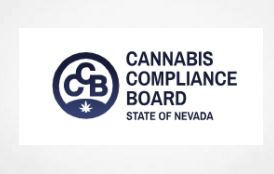Authored By: William F. McDevitt, Esq.
As the legal status of cannabis evolves, state legislatures are confronted with a difficult moral issue – how should local and state governments treat persons convicted of offenses that are no longer illegal? Below is a discussion of some of the options.
Expungement
Expungement is an option being considered by numerous jurisdictions. Currently, the New Jersey Legislature is considering an expungement bill that was originally part of a broad proposal to legalize cannabis. It has been reported that some legislators who are willing to legalize “adult” or recreational cannabis use are unwilling to revisit prior convictions or the effect that low-level possession cases may have on an individual’s ability to obtain credit, employment, or to avoid increased criminal penalties in any subsequent criminal proceedings.
In 2016, there were approximately 32,000 arrests for possession of cannabis in New Jersey. The deletion of the arrests from state and local records for that single year would represent a monumental task. Deleting convictions and then accounting for the effect of those convictions on subsequent cases represents an unknown expenditure of time and resources. But it is not hard to believe that an expungement statute exonerating citizens over a five- or ten-year period could bring New Jersey’s criminal justice system to a standstill. Therefore it’s no wonder that statewide expungement has been slow to gather steam.
Delaware passed an expungement law in September 2018, but the law is limited to cannabis possession cases with no other violations and applies to convictions from 2015 forward. Maryland, Massachusetts, Oregon, Colorado and New Hampshire have limited expungement programs. California, at the forefront of cannabis legalization, has not yet finalized an expungement plan. Local governments, including Denver, San Francisco, Dan Diego and Seattle have enacted procedures to expunge low-level cannabis possession cases.
Decriminalization
Some jurisdictions are pursuing decriminalization as a means of avoiding the need for expungements in the future. Seattle, Oakland, Denver, San Francisco and Philadelphia are among numerous large cities that have waived criminal penalties for low-level possession (without other offenses). Connecticut, Delaware, the District of Columbia, Illinois, Maryland, Massachusetts, Missouri, New Hampshire, Rhode Island, Vermont and the U.S. Virgin Island have abandoned zero-tolerance policies and allow citizens to possess cannabis in varying amounts. Smaller municipalities are following suit. But the majority of U.S. jurisdictions are hesitant to contradict federal law, which continues to list cannabis as a substance with no medicinal value.
States that have legalized medical marijuana under the (now withdrawn) standards of the Cole Memorandum have sought to limit the possession and use of cannabis to strictly defined parameters. Allowing possession and use without a prescription or medical approval is contrary to the concept of a controlled, regulated “state-legal” model. Under Cole (and the FinCen Guidelines for banking), a “state-legal” enterprise that limits cultivation, processing and distribution within a state − strictly overseen to prevent interstate distribution, sales to minors or influence from criminal enterprises − is allowable. Permissive non-regulated cannabis use, even within a state, invites federal intervention.
Access to Opportunities in Legal Cannabis
Avoiding federal intervention and prosecution of “state-legal” businesses requires cannabis-touching enterprises to deny employment to persons with prior cannabis convictions. Since there has been a correlation between cannabis prosecutions and race, there is a possibility that minority participation in state-legal cannabis will be adversely affected by prior anti-marijuana prosecutions.
To address this problem, Pennsylvania, Maryland, Illinois and Florida consider either the level of minority ownership or the scope of an applicant’s “diversity plan” when reviewing applications for cannabis cultivation, processing and dispensary licenses.
Ohio attempted to go further by setting aside 15 percent of all licenses for minority-owned businesses to counterbalance the negative effect of marijuana prosecutions on minority populations. Ohio’s effort was struck down in a November 15, 2018, decision in Pharmacann Ohio, LLC v. Williams, in which Franklin County Judge Charles A. Schneider held that the State failed to show that the set-aside of licenses advanced a legitimate state interest. Most notably, it was held that the inordinately high level of cannabis possession convictions among Black and Latino populations did not justify an increased access to cannabis processing or dispensing opportunities for Black, Latino, Asian and female -owned businesses. The trial court refused to conflate possession and distribution or hold that the means for redressing racial prejudice in the prosecution of illegal cannabis sales in the past would be to provide increased access to legal cannabis distribution in the future.
Fully redressing 90 years of criminal marijuana prosecutions and the effect that those prosecutions had on the lives of hundreds of thousands of Americans is impossible. States and local governments are seeking to balance the 21st Century’s growing acceptance of cannabis with four generations of anti-marijuana policy. Awareness of the social justice implications of legalization is the first step toward assuring that citizens no longer face life-long social, economic and criminal penalties for actions that have become socially accepted by the majority of Americans.
About the Author
William F. McDevitt is a partner in the Philadelphia office of national law firm Wilson Elser, where he is a member of the firm’s Cannabis Law practice. He can be reached at [email protected]


















